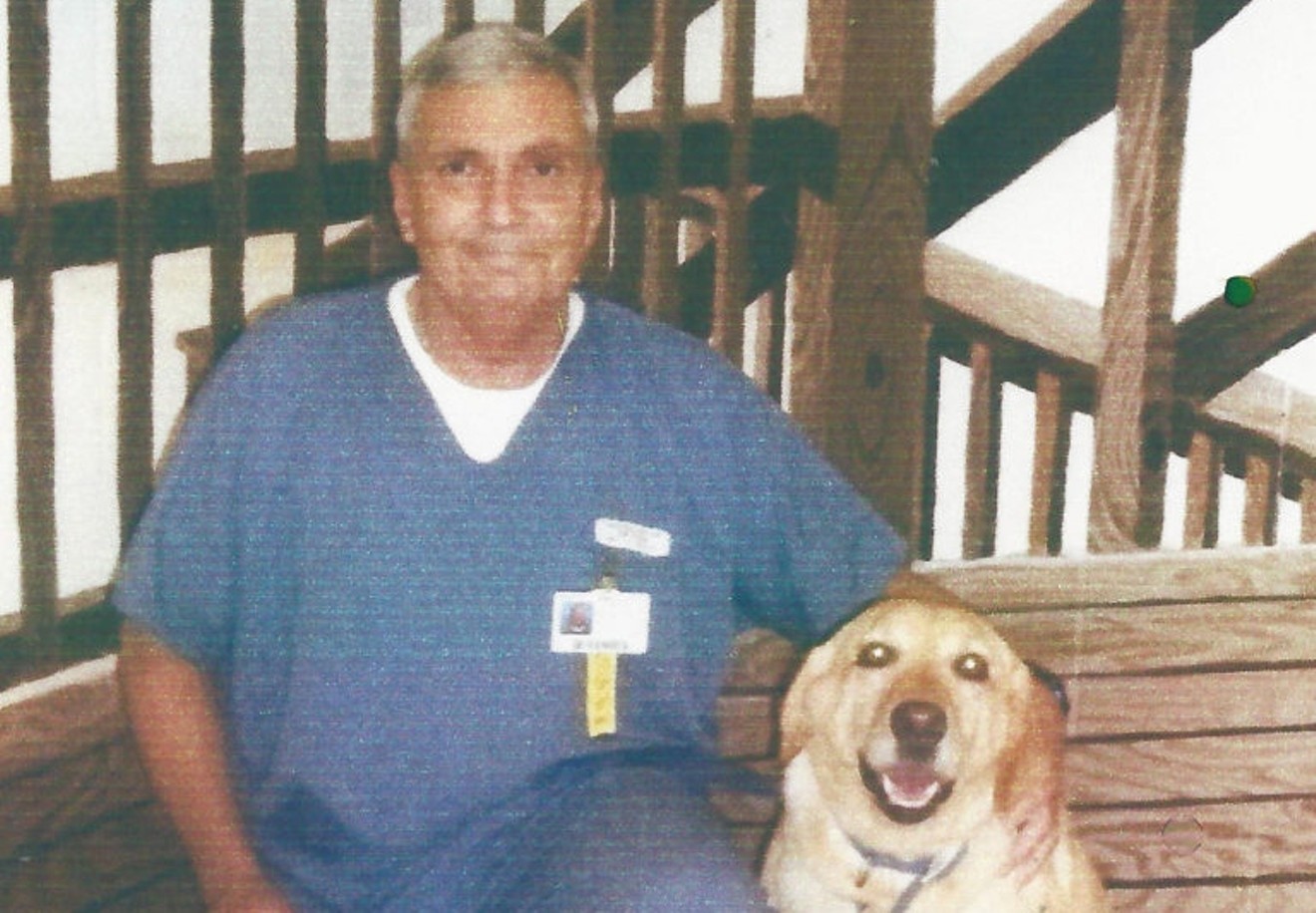On Sunday, he learned he has COVID-19.
In a different timeline, Forrester might have avoided contracting the virus. Because of his medical vulnerability, he requested a furlough from the Florida Department of Corrections back in May and again in June. Both times, he was denied.
Greg Newburn, the Florida director of Families Against Mandatory Minimums, says that's unconscionable.
"There's just no reasonable defense for keeping him in prison. Not a single plausible defense for keeping that man incarcerated for years, much less now," Newburn tells New Times. (Reason and the Miami Herald reported on Forrester's COVID-19 diagnosis earlier this week.)
Forrester has said he became addicted to prescription painkillers following his diagnosis with lung cancer 18 years ago. He was arrested in 2008 after filling a false prescription for oxycodone pills — a crime that the State of Florida at the time classified as drug trafficking. He was sentenced to the mandatory minimum sentence of 15 years. (Some time has since been shaved off his sentence for good behavior.)I told you two months ago he needed to be released, and offered several ways to do it. And no one did a damn thing - you cowards. Now look what's happening. https://t.co/uEvqzM60Va
— Greg Newburn (@GNewburn) July 12, 2020
Since Forrester was sentenced in 2009, Florida legislators have rolled back the harsh law that put him in prison for over a decade. But because the 2014 change was not made retroactive, Forrester and others continue to serve long sentences for victimless drug crimes.
Denise Rock, director of Florida Cares, an advocacy group supporting families of incarcerated people, says she has come to know Forrester over time through the prison's email system. Since March, she says, he has worried about contracting the coronavirus and confined himself to his bunk for most of the day.
On May 28, Forrester submitted a request to be furloughed along with a letter from a friend in Orlando willing to sponsor him on a home-confinement plan for the remainder of his sentence. An official at the Bay Correctional and Rehabilitation Facility, a prison outside of Panama City where he is being held, rejected the request, saying it was the wrong form, according to Forrester.
With the guidance of FAMM's Newburn, Forrester again submitted the form on June 18. His request says that in addition to having only one lung, he suffers from heart disease and chronic obstructive pulmonary disease (COPD).
"I need shelter at home so I am distanced and protected from the unique circumstances that give rise to the increased chances of infection of COVID in prison," Forrester wrote. "Please have mercy on me."
One week later, the assistant warden responded that Forrester would need to submit paperwork for a different kind of furlough.
From there, the situation grew more dire. On July 4, Forrester told Rock in an email that someone inside the facility was sick and that the inmates had been quarantined. Days later, the prison confirmed three cases of COVID-19.
"[I]f I get this virus I'm toast," Forrester wrote in a July 7 email to Rock.
Finally, this past Sunday, Forrester got the confirmation that he, too, had been infected.
"He kind of felt like this was coming," Rock tells New Times. As of yesterday, 67 inmates at Bay Correctional had tested positive for COVID-19; 448 tests are pending.
Newburn tells New Times Forrester applied for a Type A furlough, which allows people to be furloughed from prison to visit a dying relative, attend a relative's funeral, or "any other reasons deemed consistent with the public interest." Newburn argues that the coronavirus pandemic certainly qualifies as consistent with the public interest.
Since Tuesday, the Florida Department of Corrections has been preparing a response to New Times about Forrester's case but has not yet provided an official statement.
In a letter to Newburn on May 12, the department said it disagrees with Newburn's interpretation of the furlough rule.
"Further, wrote Dorothy M. Burnsed, a lawyer for the prison system," the proposal does not acknowledge the resources FDC would be required to expend in conducting any large-scale furlough initiative, such as securing sponsors, monitoring furloughed inmates in addition to those offenders already supervised by FDC, locating absconders and ensuring the public’s safety against crimes potentially committed by those furloughed."
Newburn says he doesn't buy the department's position that its hands are tied when it comes to COVID-related furloughs.
"There's just nothing at all in the rule or the statute that prevents the department from doing that," he maintains.
In Forrester's case, Newburn says what has happened is "institutional failure stacked on institutional failure, all leading to a completely foreseeable and tragic outcome.
"So many people could have done something," he adds, "and no one did."












